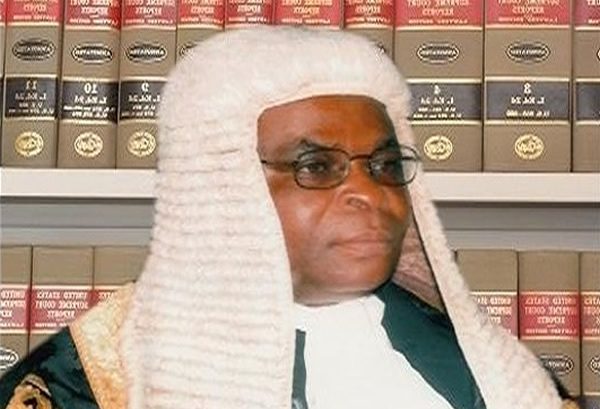Until Saturday, January 11, 2019, not many Nigerians would have heard of the name Anti-Corruption And Research-Based Data Initiative (ARDI).
It was on that day that the news broke of the petition filed by the civil rights group against the Chief Justice of Nigeria (CJN),Justice Walter Onnoghen, at the Code of Conduct Bureau (CCB) alleging that he owns ” sundry accounts primarily funded through cash deposits made by himself up to as recently as 10th August 2016, which appear to have been run in a manner inconsistent with financial transparency and the code of conduct for public officials.”
It said Onnoghen did not declare the accounts as required by law.
That petition is now threatening to consume Onnoghen, who was sent on suspension yesterday by President Muhammadu Buhari.
The ARDI petition, dated January 7, 2019, was received two days later by the CCB, according to online publication, TheCable, which broke the news.
Things moved in quick succession with the Federal Government filing a six-count charge against him for alleged failure to declare some of his assets, including about $3million.
The $3million is said to be lodged in five accounts.
The domiciliary and Naira accounts in the Standard Chartered Bank are coded as USD account No. 870001062650; Euro account No. 93001062686; Pound Sterling A/CNo. 285001062679; e-Saver Savings (Naira) account No. 5001062693; and a Naira A/C No. 010001062667.
The charge sheet is dated January 10 and was filed on January 11.
A CCB investigator, Mr. James Akpala, said in an affidavit in support of the charges against Onnoghen, that the filing of the case stemmed from a petition against the CJN.
Akpala was silent on the name of the petitioners.
He merely said: “I know as a fact that the Head Office of the Bureau received a petition alleging that the CJN failed to declare his assets according to the law.”
ARDI describes itself as “a whistleblower and an Anti-Corruption Awareness disseminator, whose effort is to strengthen our democracy and ensure transparent, accountable and responsive governance devoid of corruption for our society.”
The civil society group said its petition was necessitated by “the imminence of the 2019 General Elections and the overwhelming roles of the Judicial Arm both before and after.”
It claimed that Onnoghen owns “sundry accounts primarily funded through cash deposits made by himself up to as recently as 10th August 2016, which appear to have been run in a manner inconsistent with financial transparency and the code of conduct for public officials.”
It alleged that Onnoghen made five cash deposits of $10,000 each on March 8, 2011 into Standard Chartered Bank Account 1062650; two separate cash deposits of $5000 each and four deposits of $10,000 each on June 7, 2011.
Five similar cash deposits of $10,000 followed on June 27, 2011, and another four deposits of $10,000 each the following day.
Onnoghen, according to the petition, failed to declare his assets immediately after taking office, contrary to section 15 (1) of Code of Conduct Bureau and Tribunal Act; and that he did not comply with the constitutional requirement for public servants to declare their assets every four years during their career.
It added that the CJN appeared “to have suppressed or otherwise concealed the existence of these multiple domiciliary accounts owned by him, as well as the substantial cash balances in them.”
It said the CJN’s financial transactions appeared suspicious and not justifiable by his lawful remuneration at all material times.
Detectives investigating the finances of the suspended CJN last weekend turned their attention to his salary account.
Sources said they may have unearthed evidence that the salary account laid untouched in the bank for 18 months at a stretch.
Input: TheNation


Leave a Reply